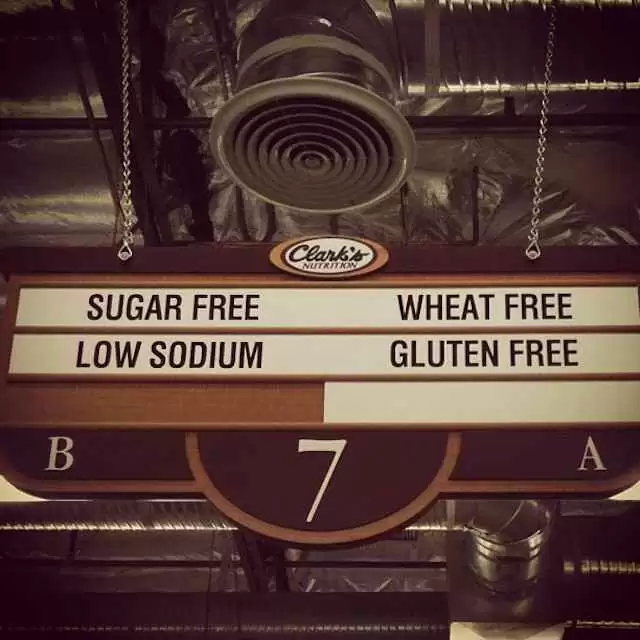
Celiac.com 06/23/2022 - Surprise! Fats are as important to your body as protein. Fats, in a balance between omega-3 and omega-6, control every motion, emotion, pain and heart beat. About half of your brain, your hormones, nerves and cell walls are various types of fats and cholesterol. Since your brain is basically a machine made of fats (directing other fats and proteins), it is, for its own protection, not primarily equipped to burn fats (like your heart) and it constantly needs glucose for energy. Adults only need about 5% fat in their diets. Children, however, need about 30% fat. One Harvard study shows that the total amount of fat in the diet, whether high or low, has no real link with disease. What really matters is the TYPE of fat in the diet.
People and animals store the types of fat they eat. For example, if you feed chickens flaxseed or fish, their eggs have a huge percentage of omega-3. Eat solid, partially hydrogenated or heat-damaged fats and one may speed up premature aging. Flax oil helps the skin stay smooth, while lecithin and fish oil keep things “fluid”. It’s not about being plump or thin, it’s about health! Without fat in the diet, we would not be able to absorb vitamins A, D, E, and K.
Celiac.com Sponsor (A12):
The usual commercial refining process for vegetable oils begins with seeds that may contain high levels of pesticides and herbicides. The seeds are crushed and subjected to a series of chemical treatments at temperatures up to 520°F. These treatments include the use of toxic solvents, caustic soda, preservatives and de-foamers, and they result in the destruction of essential fatty acids, loss of vitamins and minerals, and the formation of trans-fatty acids and free radicals. This is all done in the name of longer shelf-life and consumer acceptance (what’s left looks clean and pretty!). The “cold-pressed” or “expeller-pressed” oils available at health food stores are no guarantee of quality. Expeller-pressing still generates temperatures up to 200°F (93.3°C), and most of these oils are then refined and deodorized using basically the same nutrient-destroying process used in commercial ‘grocery store’ oils.
Saturated Fats
Saturated fat in the diet, which raises both LDL and HDL, should be severely restricted. There is evidence that diets high in animal fat and saturated fat increase endometrial, prostate and colon cancer risk. This fat is usually solid at room temperature. The liver uses saturated fats to manufacture cholesterol—the more saturated fat in the diet, the more cholesterol your liver will produce. Natural sources are whole milk, butter, cheese, ice cream, red meat, poultry skin, seafood, milk chocolate, coconuts, coconut milk, and coconut and palm oils.
Polyunsaturated Fats
Polyunsaturated fats are liquid at room temperature and come from vegetables, nuts or seeds such as corn, soybeans and sunflower seeds. They may lower total blood cholesterol however, in doing so, they may also reduce HDLs. Polyunsaturated fats contain omega-6 oil; an insufficiency of omega-6 can result in autoimmune problems, breast pain and lumpiness, eczema, hyperactivity in children, hypertension, inflammation and PMS. Limit your intake of polyunsaturated oil, but don’t totally eliminate them from your diet. The body does not make this oil; it needs a small amount of it to prevent essential fatty acid deficiency and to help regulate blood pressure. Do not fry or sauté with “polyunsaturated” light oils such as safflower, sunflower or corn oils. They oxidize readily into damaging free radicals at high temperatures. Free radicals are highly reactive molecules that can tear into your cells and start nasty chain reactions that can leave behind extensive damage, including alteration of your genetic code (DNA) and formation of cancer cells.
Monounsaturated Fats
Monounsaturated fats are liquid oils that help regulate hormones (clotting, pain, cramping, inflammation, etc.) and help prevent irregular heart beat (arrhythmia), lower LDL (bad cholesterol) and raise HDL (good cholesterol). Natural sources are olives, olive oil, canola oil, peanut oil, cashews, almonds, peanuts and most other nuts, and avocados. Harvard researchers found that replacing 80 calories of carbohydrates with 80 calories of either polyunsaturated or monounsaturated fats lowered the risk for heart disease by about 30 to 40 percent.
Hydrogenated Fats
‘Trans-fats’, are solid fats produced artificially by heating liquid vegetable oils with metal catalysts and hydrogen. This process is called ‘hydrogenation’ and it enables certain foods to remain in a solid form at room temperature and prevents them from becoming rancid. Spreadable tub margarine is less hydrogenated and has fewer trans fats than stick margarine. The oils used to cook French fries and other fast foods are usually this kind of partially hydrogenated oil. Commercial baked goods, snack foods, and processed foods frequently include trans fats to protect against spoilage. Trans fats increase LDL (bad cholesterol), decrease HDL (good cholesterol), nullify the positive effects of omega-3, and increase the risk for non-Hodgkin’s lymphoma. Based on the latest epidemiologic studies, it is estimated that 100,000 premature deaths annually are attributed to consumption of trans-fatty acids.
A report from the Institute of Medicine concluded that there is no safe level of trans fats in the diet. This has finally prompted the Food and Drug Administration to require that trans fats be listed as part of the Nutrition Facts food label. Until labels listing trans-fats appear, which will probably take a year or more, check the ingredient list for “hydrogenated oils.” The higher up these are listed, the more trans-fats the food contains.
In 1912, Procter & Gamble introduced trans-fats in their new product, Crisco. The Crisco ad writers, with incredible foresight, wrote: “Trans-fats will affect every family in America!” According to Russell Jaffe, M.D., a noted medical researcher, hog farmers will not feed trans-fats to their animals because the pigs will die if they eat them. When Dr Jaffe contacted the U.S. Department of Agriculture, he found that it knew all about this but was not interested in the possible human effects since this area was not under its jurisdiction. The food industry funds a great deal of research. People in the research community know that you can often predict the outcome of a study if you know who is funding it. In that light, it’s unwise to accept blindly the press releases on ‘the latest research’ without considering who paid for it.
Omega-3 Oil
Just a few grams of omega-3 per day help prevent irregular heart beat (arrhythmia), decrease inflammation, promote blood flow, slash triglycerides, keep skin and other tissues youthful and supple through lubrication, and it increases our ability to think clearly. It also helps our bone density grow, helping to avoid osteoporosis, may prevent coronary heart disease and stroke, may prevent autoimmune disorders (lupus, Crohn’s disease, rheumatoid arthritis and nephropathy) and certain cancers. Flax (linseed oil) is a unique seed because it is 55% omega-3. Flaxseed oil is great to use in salad dressing or anytime the oil is not heated. If you purchase ground flax seed, keep it refrigerated or frozen to keep it from turning rancid. Other sources of omega-3 oil are canola oil, raw nuts, seeds, beans, and fish oil. While companies fortify many foods with vitamins, they are challenged to fortify our food with omega-3 because this oil is a liquid and quick to spoil. Evidence indicates that a deficiency of omega-3 fatty acids is associated with arthritis and joint stiffness, irritable bowel syndrome, PMS, prostate problems, various skin disorders as well as depression, phobias and schizophrenia.
Fats in the Food Pyramid
Harvard studies call for a change in the traditional food pyramid guidelines. They suggest promoting whole and unprocessed foods. Anything you do to foods (freeze, can, boil, age) lowers the vitamins, folic acid and B6 found naturally in that food). The current base of rapidly absorbed, refined carbohydrates (now the base of the pyramid) would move up near the top, to be consumed sparingly. The new base will consist of fruits and vegetables and will share this base with omega-3 oil.
Recommendations
- Limit the bad fats and replace them with good fats. Significantly reduce both the trans and saturated fats in your diet and replace them with polyunsaturated and monounsaturated fats. As awareness about trans-fats increases, more “trans-fat” free products are becoming available.
- Use butter instead of margarine or shortening in cooking. Butter has some problems, too, such as residual hormones and pesticides, but it is a whole food. Whole foods have fat-mobilizing nutrients to take care of their own fats if eaten in moderation. If you still choose to avoid butter, use liquid vegetable oils or a soft tub margarine that contains little or no trans-fats. If you choose a soft margarine, be sure that it’s also low in saturated fat. For years, margarine was pushed as a heart healthy alternative to butter. Butter was known to be filled with cholesterol and saturated fat that were bad for blood cholesterol and increased the risk of heart disease. Because margarine was made from unsaturated vegetable oils, it was assumed it would be better for the heart. Unfortunately, research found that some forms of margarine— specifically the hard stick margarine—are actually worse for the heart than butter because they contain large amounts of trans fats. You can leave a cube of margarine sitting out for a very long time and insects or rodents will not touch it. Some margarines are not food!
- Reduce intake of commercially prepared baked goods, snack foods, and processed foods, including fast foods.
- Eat cold-water fish (such as mackerel, sardines, tuna, trout and salmon). These particular marine fish are high in omega3 fatty acids. There is some concern about eating fish frequently, due to the chemical and heavy metal pollution in the oceans. Freshwater fish near agricultural, industrial or mining areas are best avoided due to their high-level intake of toxic chemicals. Farm-raised fish are fed something akin to pet food and should be avoided; they are not as healthy and have insignificant levels of omega-3 fatty acids.
- Have some freshly ground flaxseeds every day. Pulverize three tablespoons of seeds in a blender or coffee grinder to yield about one tablespoon of oil (mixed in with the powder). This will approximate the suggested daily amount of omega-3 oil for an average person. It can be mixed with cereal, blended in a smoothie, added to yogurt, mixed into stuffed peppers, meatloaf, and stuffed cabbage rolls—your family won’t even realize they are eating healthier!
Broiled Vegetable Dinner Recipe
This recipe is from the “Wheat-free Gluten-free Reduced Calorie Cookbook” by Connie Sarros.
Ingredients:
- 2 1⁄2 cups gluten-free chicken broth
- 1⁄4 cup water
- 1 cup brown rice
- 2 Tablespoons chopped fresh parsley
- 2 medium zucchini, julienned
- 1 medium yellow squash, julienned
- 2 Portobello mushrooms, sliced thin
- 1⁄2 green pepper, julienned
- 1⁄2 red bell pepper, julienned
- 1 large tomato, cut into 12 wedges
- 1 onion, sliced thin
- 3 Tablespoons extra virgin olive oil
- 2 Tablespoons balsamic vinegar
- 1 Tablespoons gluten-free soy sauce
- 1⁄4 teaspoon salt
- 1⁄4 teaspoon pepper
- 1⁄4 teaspoon garlic powder
- 1⁄2 teaspoon dill weed
Directions:
Bring the broth and water to a boil in a 1-qt. saucepan. Stir in the rice and parsley; lower heat, cover, and cook 25 minutes or until moisture is absorbed. Preheat broiler. Spread out vegetables on a greased baking sheet.
In a small bowl, whisk together remaining ingredients; drizzle sauce over vegetables. Broil the vegetables 3 inches from the heat for 4 minutes. Turn vegetables and continue to broil till browned but still slightly crisp.
To serve, spoon vegetables over hot rice. Makes 6 servings.
Calories: 243; Total fat: 8.4g; Saturated fat: 1.2g; Cholesterol: 1mg; Sodium: 910mg; Carbohydrates: 33.4g; Fiber: 2.6g; Sugar: 0.3g; Protein: 8.3g











Recommended Comments
There are no comments to display.
Create an account or sign in to comment
You need to be a member in order to leave a comment
Create an account
Sign up for a new account in our community. It's easy!
Register a new accountSign in
Already have an account? Sign in here.
Sign In Now